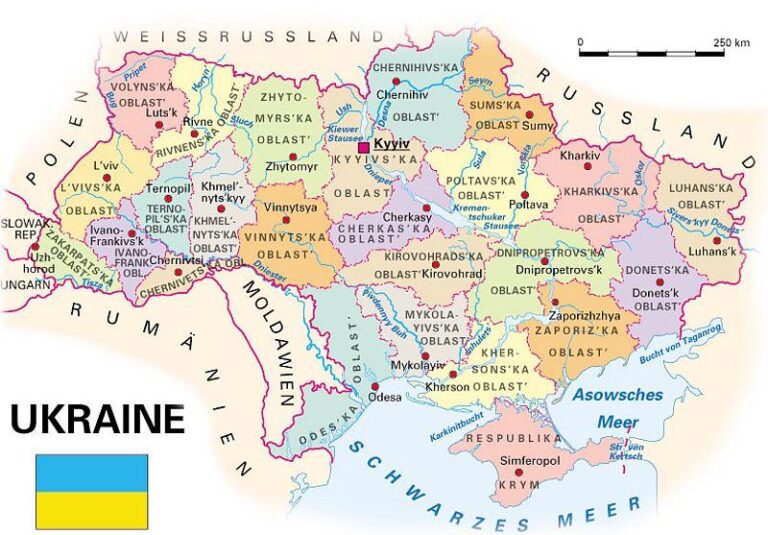As international leaders prepare to convene for a pivotal summit aimed at addressing the ongoing conflict in Ukraine, President Volodymyr Zelenskyy has firmly reiterated his nation’s stance against ceding any territory to Russia. Speaking amid mounting diplomatic pressures and escalating tensions on the ground, Zelenskyy’s declaration signals Kyiv’s steadfast commitment to sovereignty and territorial integrity, underscoring the high stakes ahead as the global community seeks a path toward resolution.
Ukraine’s Zelenskyy Stands Firm on Territorial Integrity Ahead of International Summit
Ukrainian President Volodymyr Zelenskyy has reiterated his steadfast position against conceding any part of the nation’s territory to Russia, emphasizing a firm commitment to Ukraine’s sovereignty ahead of the high-profile international summit. Critics and allies alike watch closely as Zelenskyy prepares to engage with global leaders, advocating for stronger diplomatic support and military aid to counter ongoing aggression.
In discussions anticipated at the summit, Zelenskyy is expected to highlight several key points:
- Preservation of Borders: A non-negotiable stance on maintaining Ukraine’s internationally recognized boundaries.
- International Support: Calls for sustained sanctions against Russia and increased defense assistance.
- Humanitarian Concerns: Urging the global community to address the war’s devastating impact on civilians.
| Key Issues | Ukraine’s Position | Expected Outcomes |
|---|---|---|
| Territorial Integrity | Absolute defense, no compromises |
International backing, diplomatic pressure |
| Military Aid | Increased support requested |
Enhanced defense capabilities |
| Sanctions on Russia | Stronger economic measures | Weaken Russia’s capacity to sustain conflict |
Implications of Zelenskyys Stance for Diplomatic Negotiations and Regional Stability
President Zelenskyy’s firm refusal to cede any Ukrainian territory to Russia sends a clear signal ahead of the upcoming summit, emphasizing Kyiv’s resolve to uphold its sovereignty at all costs. This stance complicates diplomatic negotiations, as it narrows the scope for concessions that Moscow might demand in exchange for peace talks or ceasefires. While this position bolsters domestic support and international backing rooted in principles of territorial integrity, it also places diplomatic actors in a difficult position, where compromise seems increasingly elusive. The message communicated is unambiguous: Ukraine prioritizes national unity over any territorial compromises, forcing counterparts to reconsider negotiation frameworks that previously assumed land concessions as bargaining chips.
The regional stability landscape is equally affected by Zelenskyy’s declarative approach. Maintaining Ukraine’s current borders without yielding territory challenges Russian ambitions, potentially prolonging tensions but also solidifying alliances among Western partners committed to Ukraine’s defense. The stance brings into focus several factors critical to understanding the broader geopolitical equation:
- Heightened NATO engagement: Increased military and logistical support aimed at deterring further aggression.
- Strained Russia-West relations: Diminished prospects for détente as both sides entrench their positions.
- Risk of regional spillover: Neighboring countries brace for possible escalation or refugee influx.
| Factor | Implication | Potential Outcome |
|---|---|---|
| NATO Support | Enhanced military aid to Ukraine | Strengthened Ukrainian defense capabilities |
| Diplomatic Deadlock | Refusal to concede territory | Prolonged negotiation stalemate |
| Regional Security | Increased tensions in Eastern Europe | Heightened alertness among neighbors |
Recommendations for Global Leaders to Support Ukraine Without Compromising Sovereignty
Global leaders must navigate a delicate balance between assertive support for Ukraine and respect for its sovereignty. This implies backing Ukraine’s right to maintain territorial integrity without coercing any concessions that could undermine its long-term stability. To achieve this, diplomatic efforts should focus on amplifying Ukraine’s voice in international forums, enhancing military aid strictly for defense purposes, and implementing robust sanctions targeting aggressors without collateral damage to the Ukrainian populace.
Additionally, strategic economic partnerships and humanitarian assistance play crucial roles in strengthening Ukraine’s resilience. Leaders can:
- Increase intelligence sharing to improve Ukraine’s defensive capabilities.
- Support energy independence to reduce reliance on adversarial nations.
- Enhance cyber defense collaboration to safeguard critical infrastructure.
- Promote legal accountability through international courts to deter aggression.
| Support Area | Key Action | Expected Outcome |
|---|---|---|
| Military Aid | Advanced defensive weapons | Enhanced battlefield resilience |
| Economic Support | Infrastructure investment | Long-term economic stability |
| Diplomatic Backing | Unified international sanctions | Pressure on aggressors |
| Humanitarian Aid | Medical and refugee support | Reduced civilian suffering |
In Summary
As the international community awaits the forthcoming summit, Ukrainian President Volodymyr Zelenskyy remains resolute in his stance against ceding any territory to Russia. His firm position underscores the ongoing complexities and high stakes surrounding the conflict, signaling that diplomatic negotiations will continue to face significant challenges. The world will be watching closely as leaders seek pathways to peace amidst enduring tensions.




